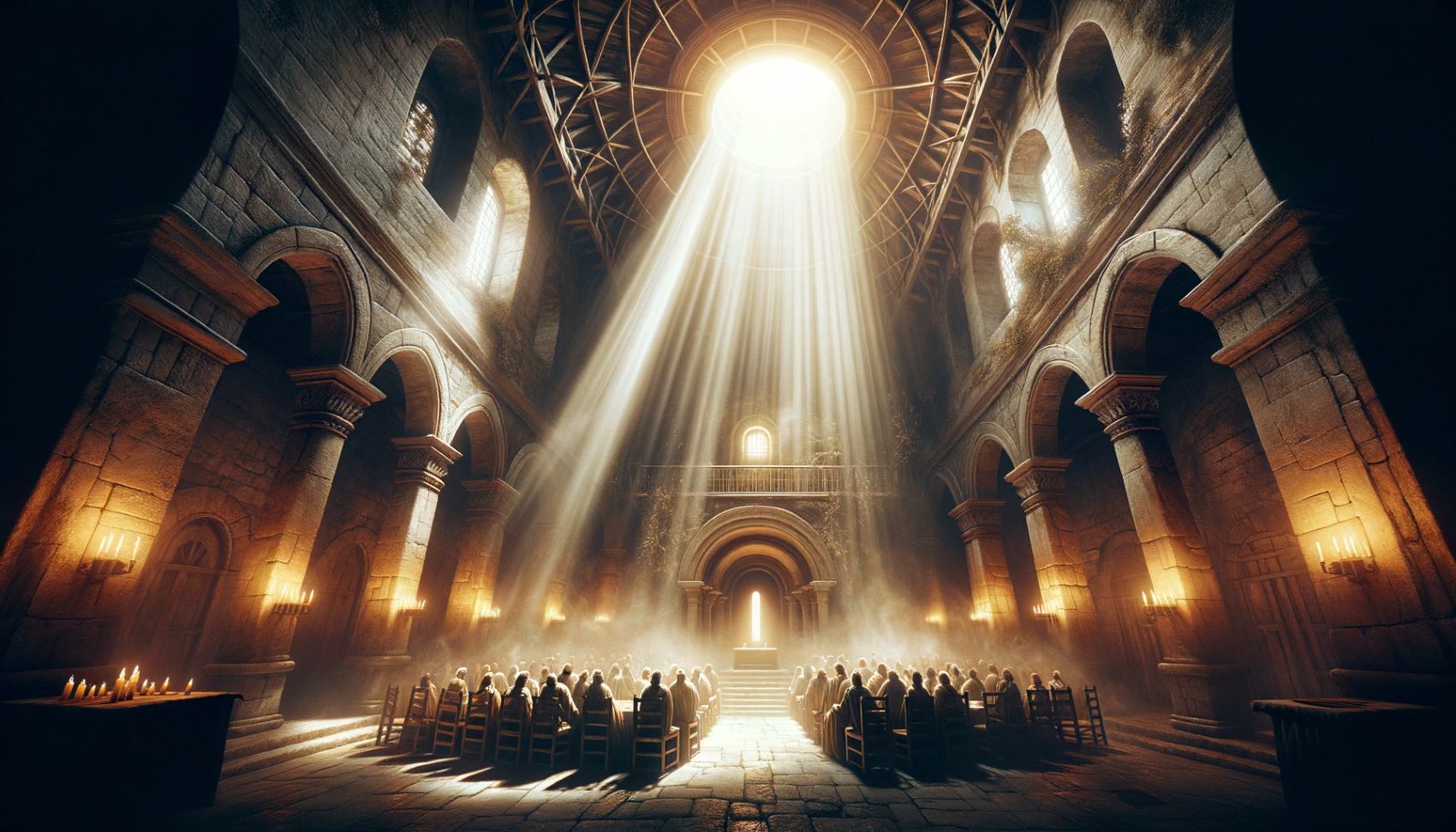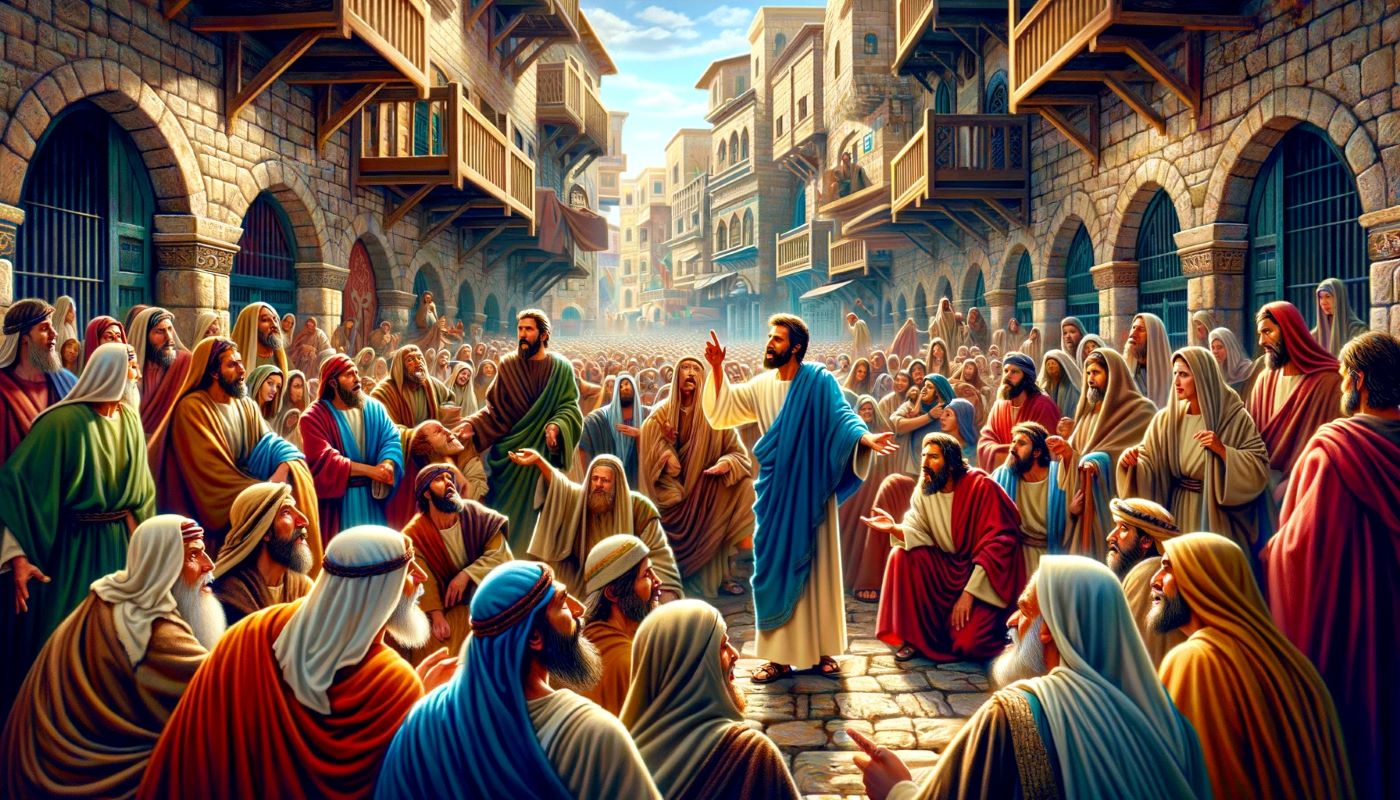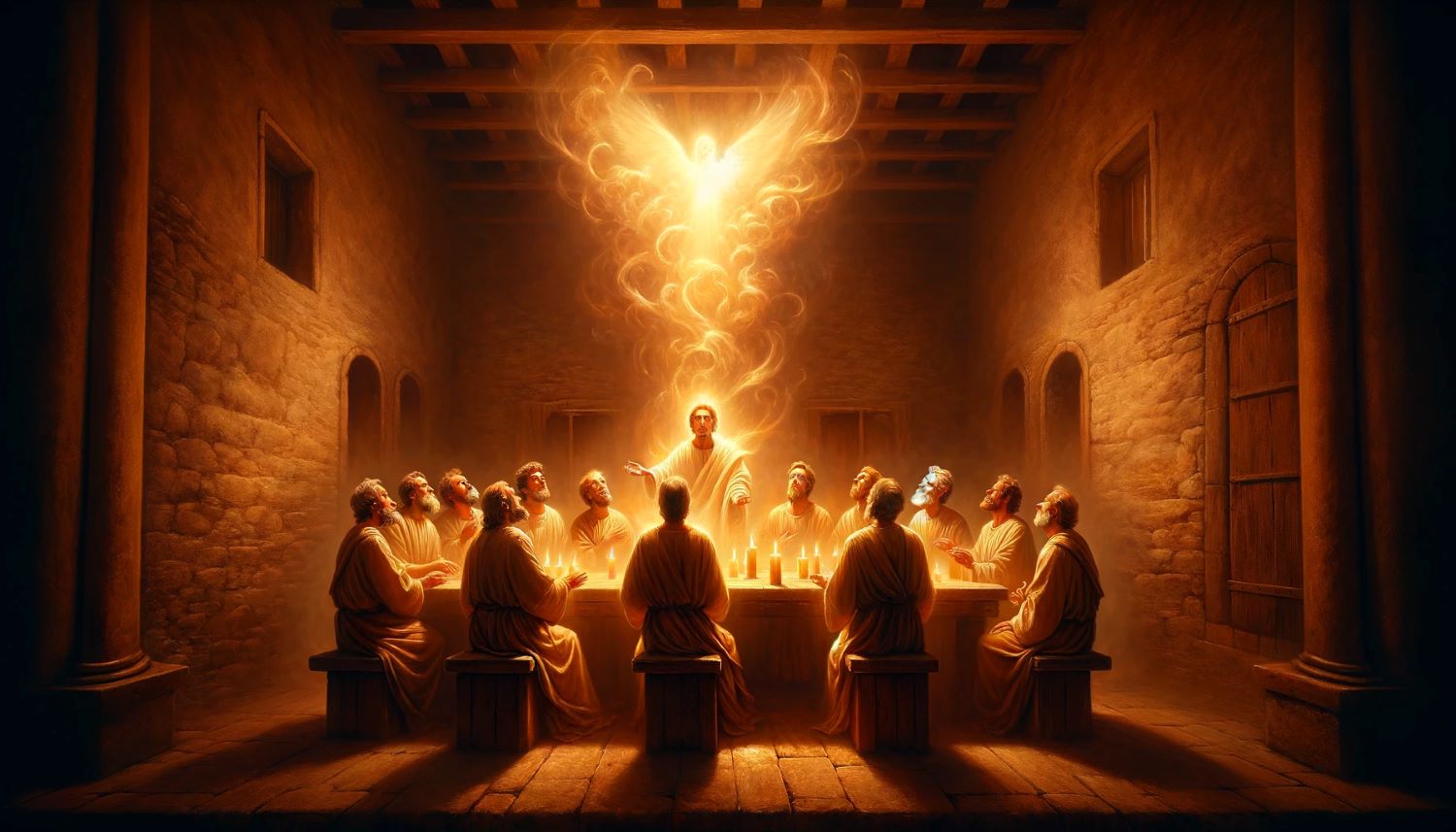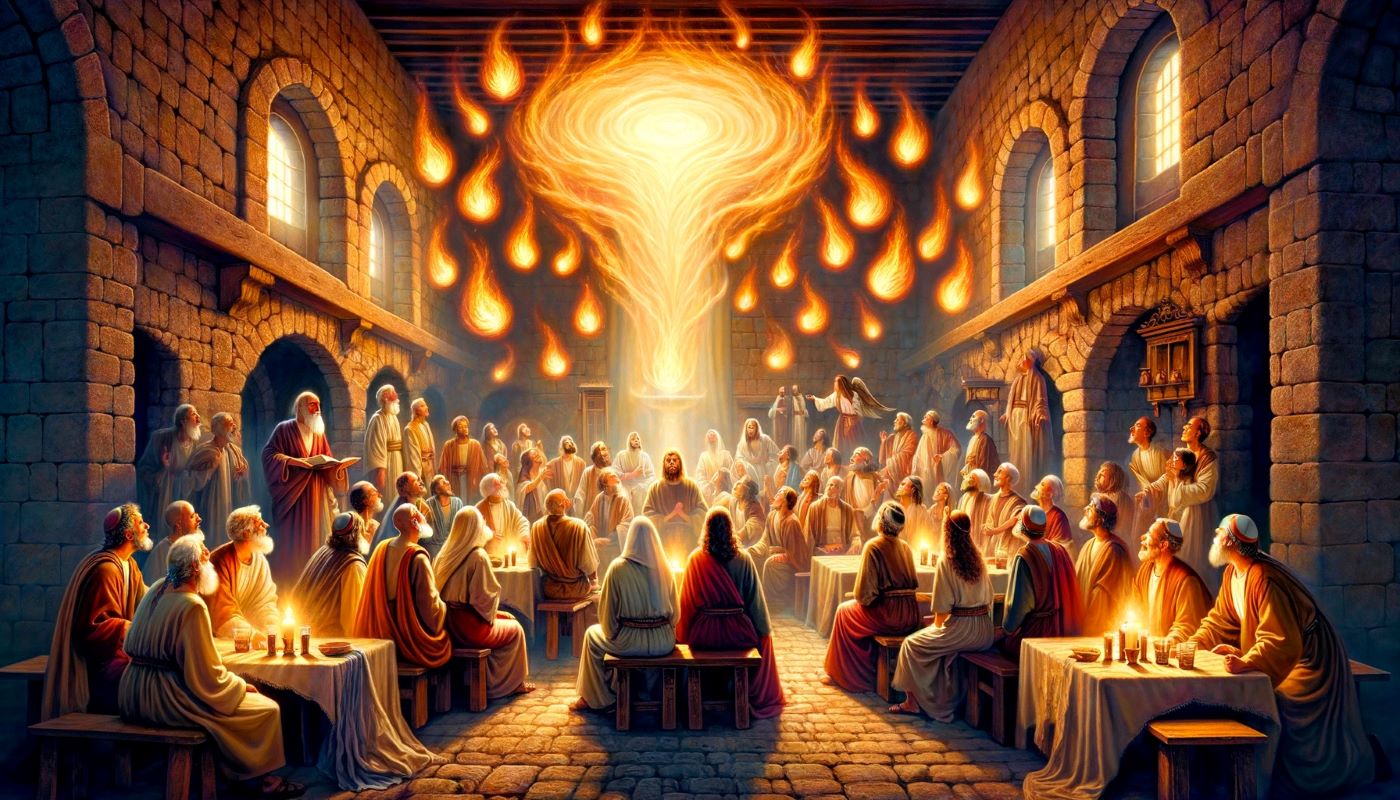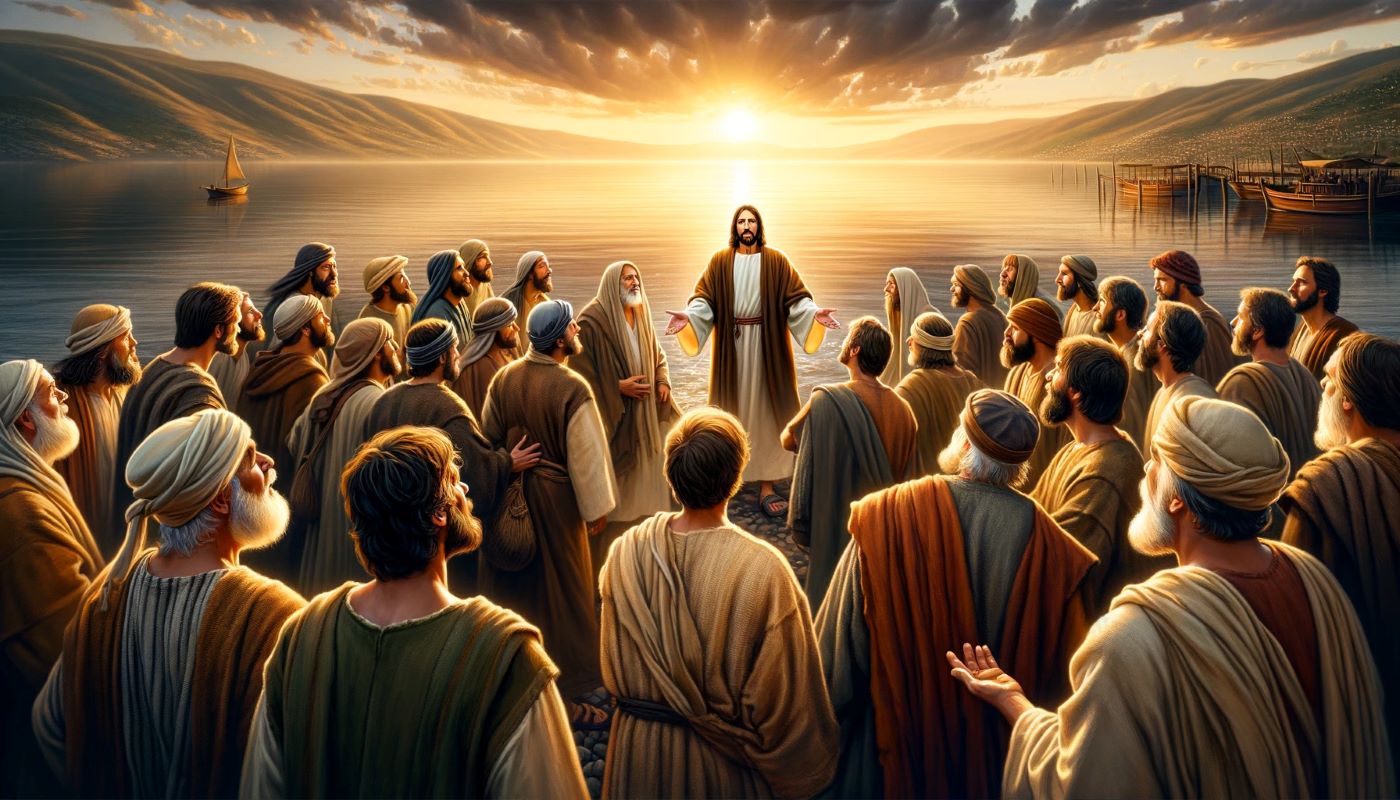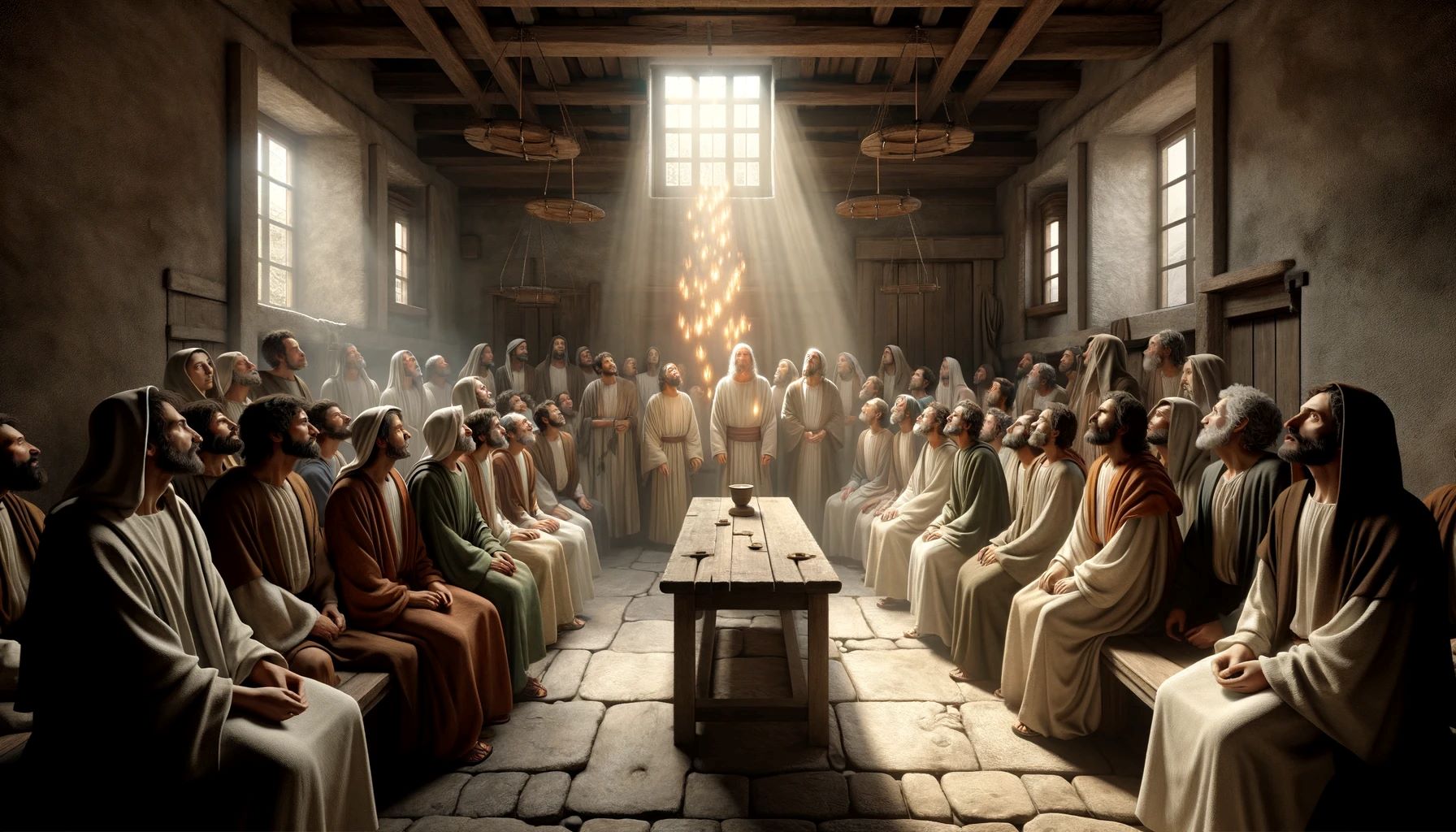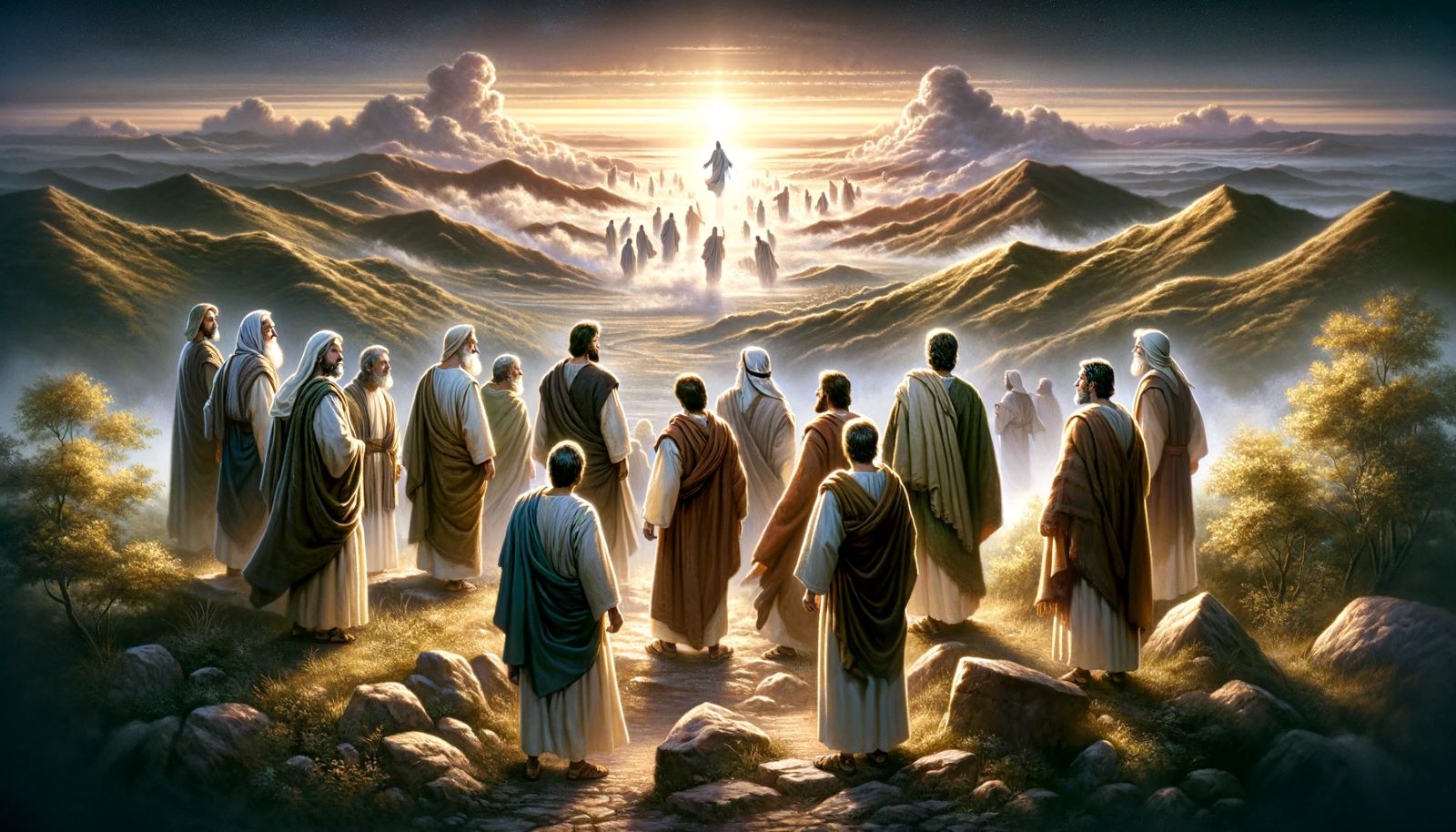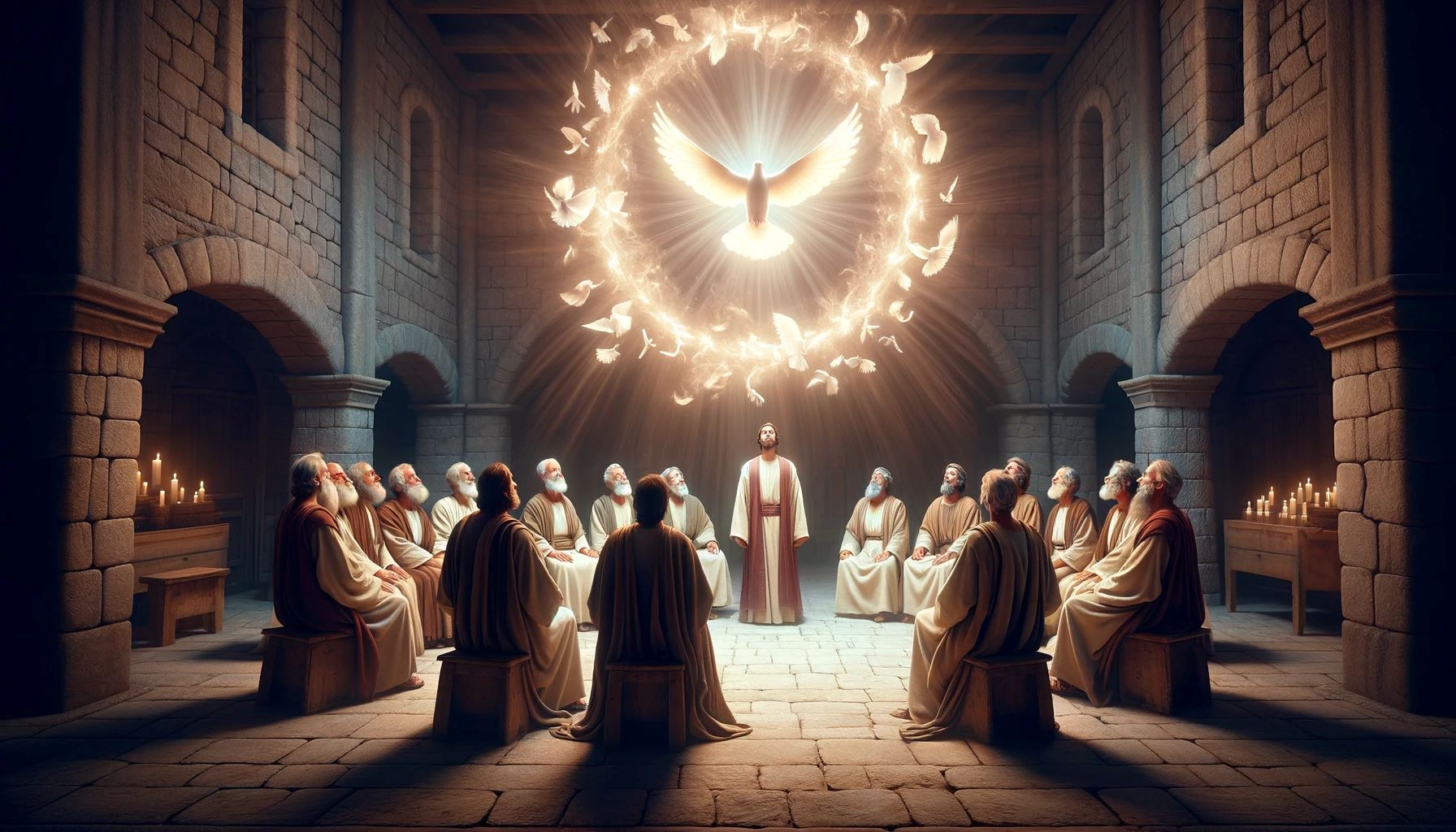Home>Bible Facts>How Many Days After Jesus Ascension Did The Holy Spirit Appear To The Apostles?
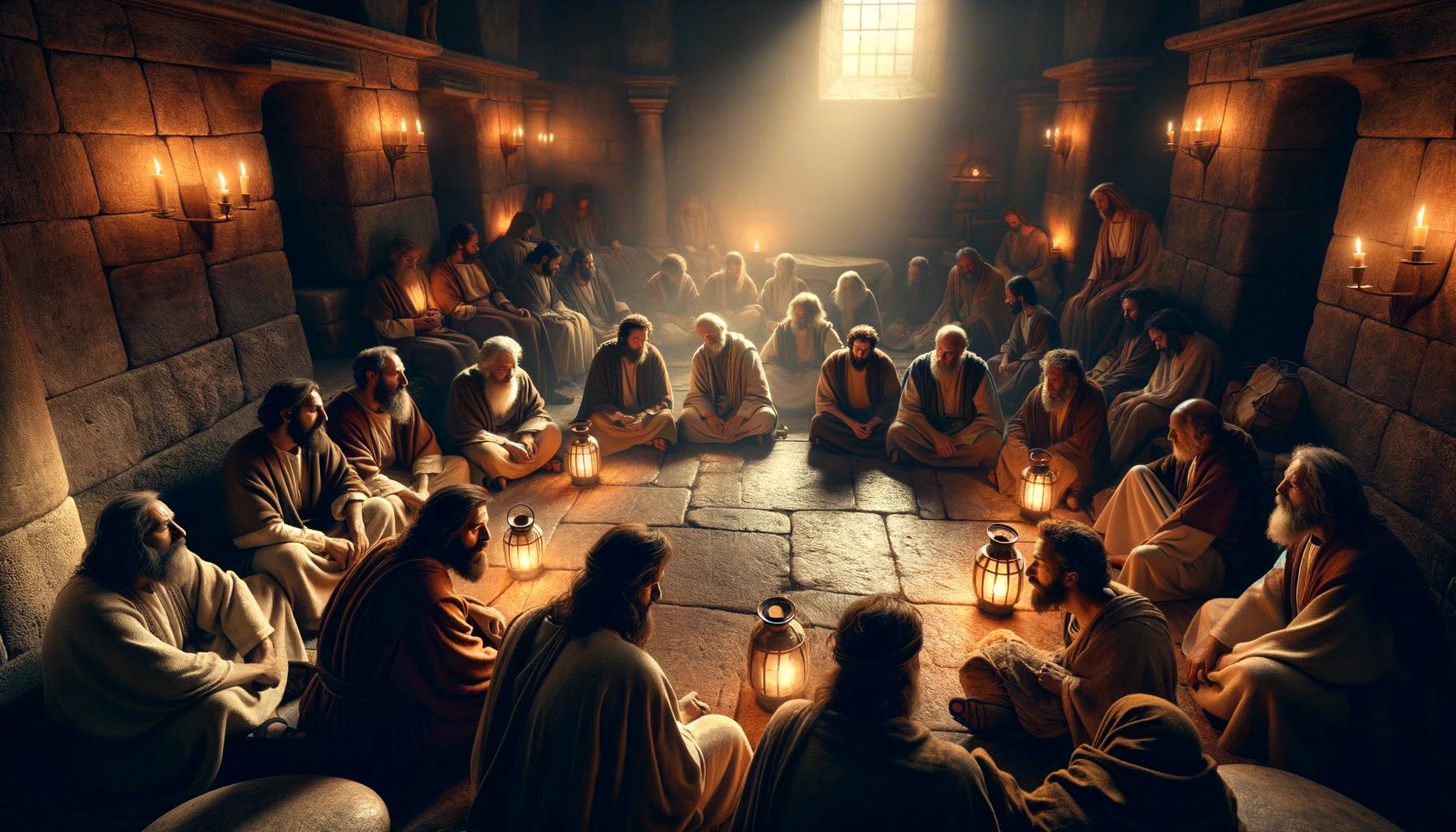

Bible Facts
How Many Days After Jesus Ascension Did The Holy Spirit Appear To The Apostles?
Published: February 19, 2024
Ericka Andersen, an editor at Christian.net, expertly merges digital strategy with content creation, focusing on faith and societal issues. Her communication skills enhance the platform's engaging narratives, fostering meaningful dialogue on belief's impact on society.
Discover the Bible facts about the Holy Spirit's appearance to the apostles after Jesus' ascension. Learn how many days it took for this significant event to occur. Explore more biblical insights now!
(Many of the links in this article redirect to a specific reviewed product. Your purchase of these products through affiliate links helps to generate commission for Christian.net, at no extra cost. Learn more)
Table of Contents
Introduction
The Bible is a rich source of spiritual wisdom and historical accounts that have shaped the beliefs and practices of millions of people around the world. One of the pivotal events in the New Testament is the ascension of Jesus Christ and the subsequent appearance of the Holy Spirit to the apostles. This extraordinary occurrence holds immense significance in Christian theology and has been a subject of profound contemplation and study for centuries.
The period following Jesus' resurrection was marked by profound anticipation and uncertainty among his disciples. They had witnessed his crucifixion, burial, and miraculous resurrection, which left them in awe and wonder. However, as Jesus prepared to ascend to heaven, he made a promise to his followers that would change the course of history. This promise was the coming of the Holy Spirit, a divine entity that would empower and guide the apostles in their mission to spread the teachings of Jesus to the ends of the earth.
The fulfillment of this promise is a pivotal moment in the Christian faith, as it signifies the transition from the physical presence of Jesus to the spiritual indwelling of the Holy Spirit. The events surrounding the ascension of Jesus and the subsequent appearance of the Holy Spirit are deeply rooted in the beliefs and practices of Christianity, serving as a testament to the divine plan and the unwavering faith of the early disciples.
As we delve into the biblical accounts of these momentous events, we gain a deeper understanding of the profound spiritual significance they hold for believers. The journey from the ascension of Jesus to the outpouring of the Holy Spirit is a testament to the enduring power of faith, the fulfillment of divine promises, and the transformative impact of the Holy Spirit in the lives of believers. Let us embark on this enlightening exploration of the biblical narrative, seeking to unravel the mysteries and revelations encapsulated within the pages of the New Testament.
The Ascension of Jesus
Following his resurrection, Jesus spent forty days appearing to his disciples and others, providing them with undeniable proof of his victory over death. As this period drew to a close, Jesus gathered his followers on the Mount of Olives, where he delivered his final instructions and imparted his divine commission. It was at this poignant moment that the ascension of Jesus took place, marking the culmination of his earthly ministry and the beginning of a new chapter in the unfolding plan of salvation.
The ascension of Jesus was a profound and awe-inspiring event, as described in the book of Acts. As the disciples looked on, Jesus was lifted up, and a cloud received him out of their sight. This miraculous departure signified the transition of Jesus from his earthly sojourn to his exalted position at the right hand of God. The disciples, undoubtedly filled with a mixture of wonder and reverence, gazed upward as their beloved teacher and Lord ascended into the heavens, leaving an indelible imprint on their hearts and minds.
The significance of the ascension extends beyond the physical departure of Jesus. It serves as a pivotal moment in the divine plan of redemption, affirming the fulfillment of prophecies and the establishment of Jesus' authority over all creation. The ascension also paved the way for the outpouring of the Holy Spirit, as promised by Jesus, which would empower the disciples to carry out their mission with divine guidance and supernatural enablement.
As the disciples stood transfixed, two angels appeared, reassuring them that Jesus would return in the same manner as they had seen him go into heaven. This profound declaration instilled hope and anticipation in the hearts of the disciples, affirming that the ascension was not a farewell, but a prelude to a future reunion with their Lord and Master.
The ascension of Jesus holds profound theological significance, underscoring his exaltation, intercessory role, and sovereign authority over the cosmos. It also serves as a source of encouragement for believers, reminding them of the promise of Christ's return and the hope of eternal fellowship with him. This monumental event, etched in the annals of Christian faith, continues to inspire and uplift hearts, affirming the enduring impact of Jesus' ascension on the fabric of Christian belief and practice.
The Promise of the Holy Spirit
Following the ascension of Jesus, the disciples were entrusted with a profound promise that would forever alter the course of their lives and the trajectory of the early Christian movement. Before his departure, Jesus assured his followers that they would receive the gift of the Holy Spirit, a divine advocate and source of empowerment who would guide, comfort, and empower them in their mission to proclaim the gospel to the ends of the earth.
The promise of the Holy Spirit was not merely a comforting assurance; it was a transformative declaration that heralded a new era in the spiritual journey of the disciples. Jesus, in his parting words, emphasized the indispensable role of the Holy Spirit in equipping the apostles for the monumental task that lay ahead. This promise was a testament to the divine provision and an affirmation of the unbreakable bond between God and his people.
The significance of this promise cannot be overstated. The Holy Spirit, often referred to as the Paraclete or Comforter, would serve as the divine presence within the hearts of believers, guiding them in truth, empowering them with spiritual gifts, and interceding on their behalf. This pledge of the Holy Spirit was a manifestation of God's abiding presence among his people, ensuring that they would never be alone or forsaken in their journey of faith.
The anticipation of this promise infused the disciples with a sense of expectancy and readiness for the extraordinary outpouring of divine grace. Their hearts were filled with hope and wonder as they awaited the fulfillment of Jesus' words. Little did they know that the arrival of the Holy Spirit would not only embolden them to proclaim the gospel fearlessly but also unite believers from diverse backgrounds into a harmonious community of faith.
As the disciples gathered in the upper room, fervently praying and seeking God's guidance, the promise of the Holy Spirit drew closer to its fulfillment. The events that transpired on the Day of Pentecost would forever alter the course of human history, as the Holy Spirit descended upon the apostles with a mighty rushing wind and tongues of fire, igniting their spirits and endowing them with the ability to speak in diverse languages.
The promise of the Holy Spirit stands as a testament to the faithfulness of God in fulfilling his word and equipping his people for the tasks set before them. It serves as a reminder to believers of every generation that the empowering presence of the Holy Spirit continues to be a source of strength, wisdom, and divine enablement in their lives and ministries. The fulfillment of this promise marked the dawn of a new era in the unfolding narrative of redemption, ushering in the transformative power of the Holy Spirit in the lives of believers worldwide.
The Day of Pentecost
The Day of Pentecost stands as a pivotal moment in the biblical narrative, marking the fulfillment of Jesus' promise to send the Holy Spirit to empower his followers. The significance of this extraordinary day is deeply rooted in the Jewish festival of Pentecost, also known as the Feast of Weeks, which commemorated the giving of the Law at Mount Sinai. It was during this sacred festival that the Holy Spirit descended upon the apostles in a spectacular display of divine power and presence.
As the disciples gathered in the upper room, united in prayer and anticipation, a sound like a mighty rushing wind filled the house, signaling the imminent arrival of the Holy Spirit. Suddenly, tongues of fire appeared and rested upon each of them, symbolizing the transformative work of the Spirit in igniting their hearts and minds with divine inspiration and empowerment. This awe-inspiring manifestation was a tangible demonstration of God's faithfulness in fulfilling his promise and inaugurating a new era in the life of the early church.
The outpouring of the Holy Spirit was accompanied by a miraculous phenomenon that transcended linguistic barriers. The apostles, filled with the Spirit's power, began to speak in diverse languages, enabling them to communicate the wonders of God to people from every nation under heaven who had gathered in Jerusalem. This supernatural ability to speak in foreign tongues astounded the onlookers, who marveled at the inexplicable phenomenon unfolding before their eyes.
Peter, emboldened by the indwelling of the Holy Spirit, stood before the crowd and delivered a powerful sermon, proclaiming the fulfillment of Joel's prophecy regarding the outpouring of the Spirit in the last days. His impassioned message, inspired and guided by the Spirit, convicted the hearts of the listeners, leading many to repentance and faith in Jesus Christ. The Day of Pentecost thus became a watershed moment in the expansion of the early church, as thousands embraced the gospel and were baptized, signaling the birth of a vibrant and dynamic community of believers.
The events of Pentecost reverberate throughout the annals of Christian history, underscoring the universal scope of the gospel and the transformative impact of the Holy Spirit in uniting diverse peoples into a harmonious body of believers. The Day of Pentecost serves as a profound reminder of the enduring power of the Spirit to transcend cultural and linguistic barriers, empowering believers to bear witness to the redemptive work of Christ to the ends of the earth.
The outpouring of the Holy Spirit on the Day of Pentecost stands as a testament to the faithfulness of God in fulfilling his promises and equipping his people for the task of global evangelization. It represents a divine intervention that transcends human limitations, ushering in a new era of spiritual empowerment and emboldening believers to boldly proclaim the gospel with conviction and authority. The Day of Pentecost remains a timeless symbol of the transformative and unifying work of the Holy Spirit in the life of the church, inspiring and guiding believers in their ongoing mission to make disciples of all nations.
The Appearance of the Holy Spirit to the Apostles
The appearance of the Holy Spirit to the apostles on the Day of Pentecost stands as a momentous event that transformed the trajectory of the early church and reverberates throughout the annals of Christian history. As the apostles gathered in the upper room, united in prayer and anticipation, the fulfillment of Jesus' promise unfolded in a spectacular display of divine power and presence.
The arrival of the Holy Spirit was accompanied by a profound manifestation that transcended natural phenomena. A sound like a mighty rushing wind filled the house, signaling the imminent arrival of the Spirit. Suddenly, tongues of fire appeared and rested upon each of the apostles, symbolizing the transformative work of the Spirit in igniting their hearts and minds with divine inspiration and empowerment. This awe-inspiring display was a tangible demonstration of God's faithfulness in fulfilling his promise and inaugurating a new era in the life of the early church.
The outpouring of the Holy Spirit was accompanied by a miraculous phenomenon that transcended linguistic barriers. The apostles, filled with the Spirit's power, began to speak in diverse languages, enabling them to communicate the wonders of God to people from every nation under heaven who had gathered in Jerusalem. This supernatural ability to speak in foreign tongues astounded the onlookers, who marveled at the inexplicable phenomenon unfolding before their eyes.
Peter, emboldened by the indwelling of the Holy Spirit, stood before the crowd and delivered a powerful sermon, proclaiming the fulfillment of Joel's prophecy regarding the outpouring of the Spirit in the last days. His impassioned message, inspired and guided by the Spirit, convicted the hearts of the listeners, leading many to repentance and faith in Jesus Christ. The Day of Pentecost thus became a watershed moment in the expansion of the early church, as thousands embraced the gospel and were baptized, signaling the birth of a vibrant and dynamic community of believers.
The appearance of the Holy Spirit to the apostles on the Day of Pentecost stands as a testament to the faithfulness of God in fulfilling his promises and equipping his people for the task of global evangelization. It represents a divine intervention that transcends human limitations, ushering in a new era of spiritual empowerment and emboldening believers to boldly proclaim the gospel with conviction and authority. This extraordinary event continues to inspire and guide believers in their ongoing mission to make disciples of all nations, serving as a timeless symbol of the transformative and unifying work of the Holy Spirit in the life of the church.
